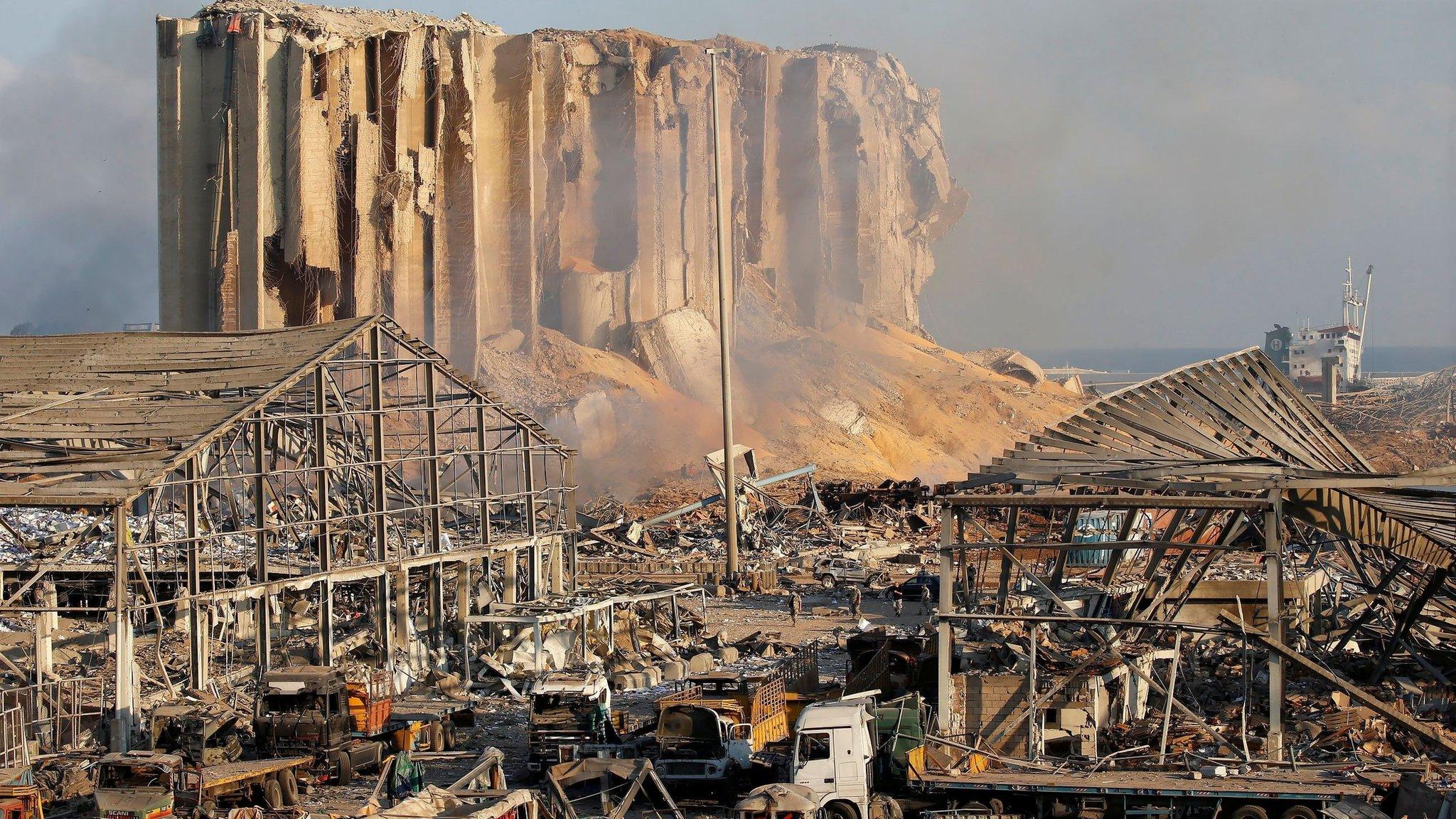Beirut blast: The other countries with dangerous dumps of explosives
- Published
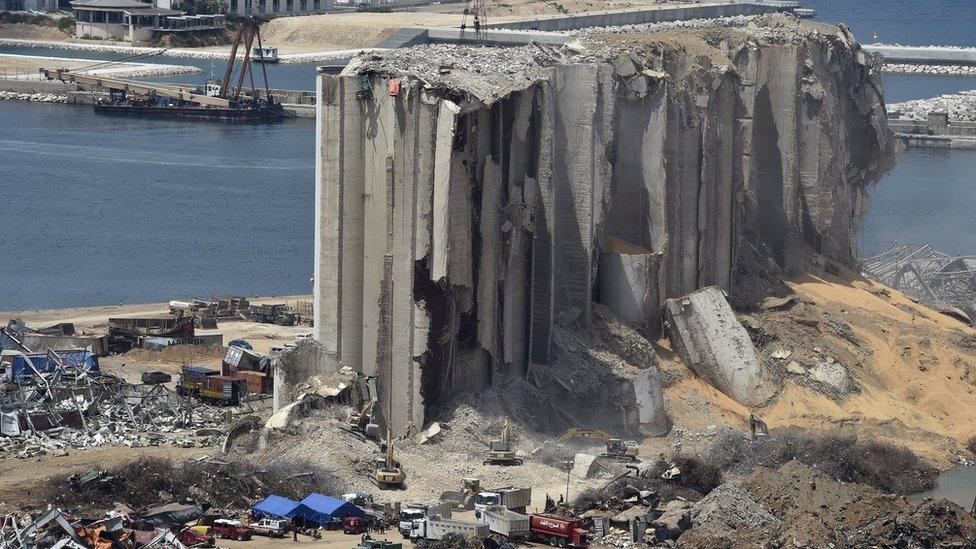
The deadly explosion in Beirut destroyed the city's port and nearby areas
The devastating explosion in Beirut is a grim reminder of a deeply troubling fact: the thousands of tonnes of ammonium nitrate unsafely stored in that city's port is not the only site at risk of spontaneous detonation.
In the Philippines, Ukraine, Georgia, Libya and Guinea-Bissau there are dangerous dumps of munitions left over from both past and present conflicts, some of them perilously close to residential areas.
According to the Swiss-based monitoring agency Small Arms Survey, between 1979 and August last year almost 30,000 people across 101 countries were killed or injured by unplanned explosions at munitions sites (UEMS).
Of the 606 recorded incidents, nearly three quarters involved state-owned stockpiles. One of the worst explosions took place at Brazzaville in the Republic of Congo in 2012, killing more than 500 people.
Simon Conway, a senior director with the British mine-clearing charity Halo Trust, says the first step needed is to get governments to admit that these arms depots are unsafe. "They are not considered to be a problem until they explode," he says.
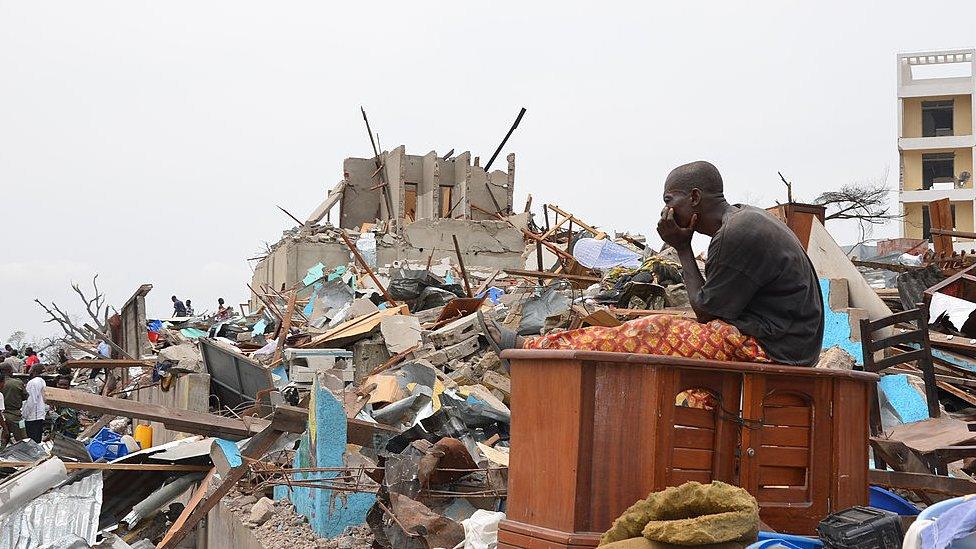
The explosion in the Republic of Congo in 2012 caused widespread damage
The next step is to bring in people with the right expertise to move the explosive stores away from residential areas and then destroy them.
"Often these sites have poor security and it would be all too easy for ingredients to go missing that later turn up in an IED [improvised explosive device]," says Mr Conway.
So after Beirut, where else should we be worried about today? Which other sites are what munitions experts consider to be potential ticking time bombs?
The Philippines
On an overgrown snake-infested island in Manila Bay sits a store of deteriorating US munitions dating back to World War Two. Rusting shells, depth charges, mortar bombs and other projectiles litter the floor of a bunker while crates of explosives and propellant charges are stacked all the way up to the ceiling.
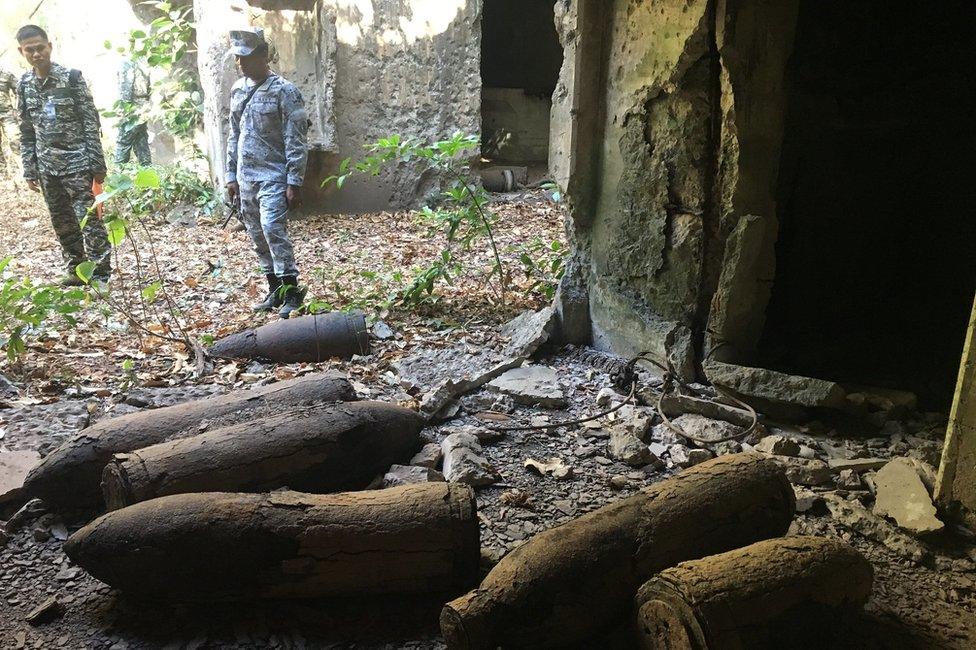
Projectiles litter the floor of a bunker on Caballo Island
The Halo Trust estimates that on Caballo Island and at another site nearby there are a total of 1.6 million explosive items - enough, it is feared, to potentially destroy the local airport at Corregidor and threaten passing ships in Manila Bay.
Mr Conway, who has inspected the site with the Philippine military, says there are two sheds containing 200,000 anti-aircraft rounds. "If those sheds went up it would definitely affect the nearby airport," he says.
There are more World War Two munitions stored at a naval base close to the capital, Manila, where Mr Conway says they are dangerously stored next to modern artillery rounds.
The horror of what happened in Beirut port has not been lost on local authorities there. Within days the Philippines Navy called Halo to discuss how best to dispose of all this ammunition safely.

More on the explosion in Beirut
LONG READ: The inferno and the mystery ship
LETTER FROM BEIRUT: 'We don't have dreams any more'
IN PICTURES: Before and after
AMMONIUM NITRATE: Where else is it being stored?

Guinea-Bissau
One of the most concerning sites is in the West African state of Guinea-Bissau where an unknown quantity of Soviet-era aircraft bombs are corroding in the heat and humidity in several sheds, close to centres of population.
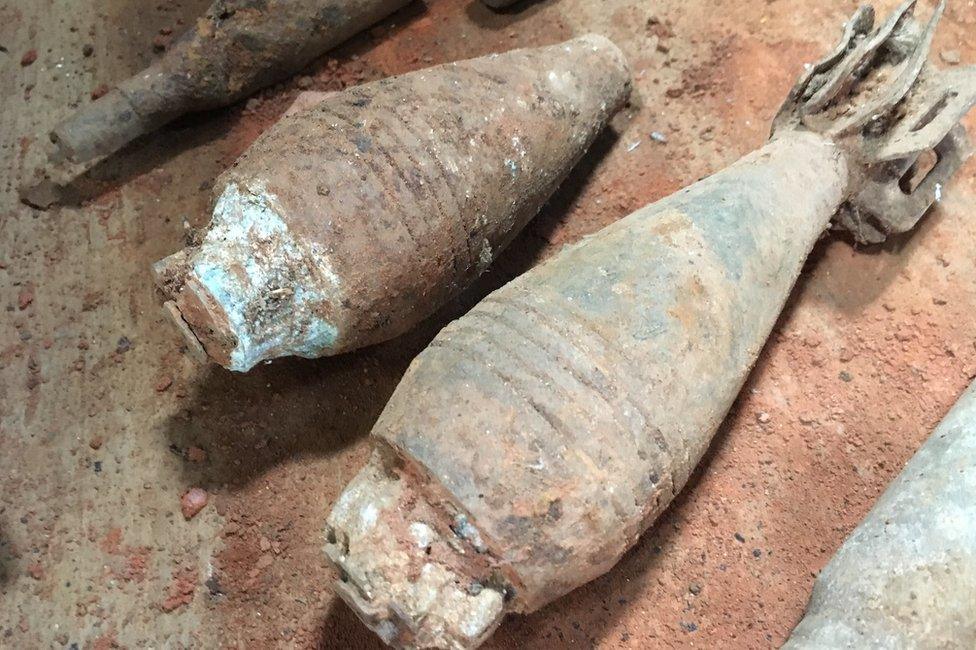
Some of the weapons being stored in Guinea-Bissau are considered highly unstable
Some of the bombs date back to the 1950s and are thought highly unstable. The site of most concern sits next to the country's second city of Bafata with a population of 22,500.
Talks with the government on how to safely dispose of it have been under way since 2005 but have been slowed by local politics. The Halo Trust says they have begun building safer depots but as yet, nothing has been destroyed.
Starting with the epicentre, we follow how the blast ripped through Beirut
Libya
Libya has been awash with weapons and munitions ever since the revolution of 2011 that overthrew the regime of Muammar Gaddafi. The UN estimates there are more than 200,000 tonnes of munitions unaccounted for, beyond government control.
"This stuff is easily trafficked down to the Sahel countries or elsewhere," says Mr Conway.
On 6 May there was an initial explosion at an ammunition store outside the town of Misrata, followed by days more of subsequent explosions as missiles, rockets and aircraft bombs blew up, scattering shrapnel over a wide area and causing an unknown number of casualties.
Halo has been working to make safe the remaining unexploded ordnance. Today one of the sites of most concern is the large Gaddafi-era arms depot at Mizdah which is close to a town of over 20,000 people.
Those trying to clear up these hazards are not only having to cope with the restrictions caused by Covid-19 but also with the perpetual dangers of Libya's ongoing civil war.
Ukraine
Like several of the former Soviet republics, Ukraine has a number of arms dumps left over from when it was part of the USSR.
In 2017 two of these exploded. One in eastern Ukraine blew up a huge store of missiles and artillery shells, prompting the evacuation of more than 20,000 residents living within 10km (six miles) of the dump.
Later that year another arms dump explosion caused a giant fireball, visible from a great distance, destroying an estimated 32,000 tonnes of munitions and again sending projectiles high into the air.
Both Kazakhstan and Uzbekistan have also suffered from unplanned explosions at arms dumps.
The BBC's Quentin Sommerville speaks to the fiancé of Sahar Fares, a firefighter medic who died in the blast in Beirut
Breakaway Georgian republic of Abkhazia
In August 2017 an unplanned explosion at a warehouse on the Black Sea storing more than 2,000 tonnes of high explosive ammunition sent missiles and other projectiles up into the air that landed up to 12km away.
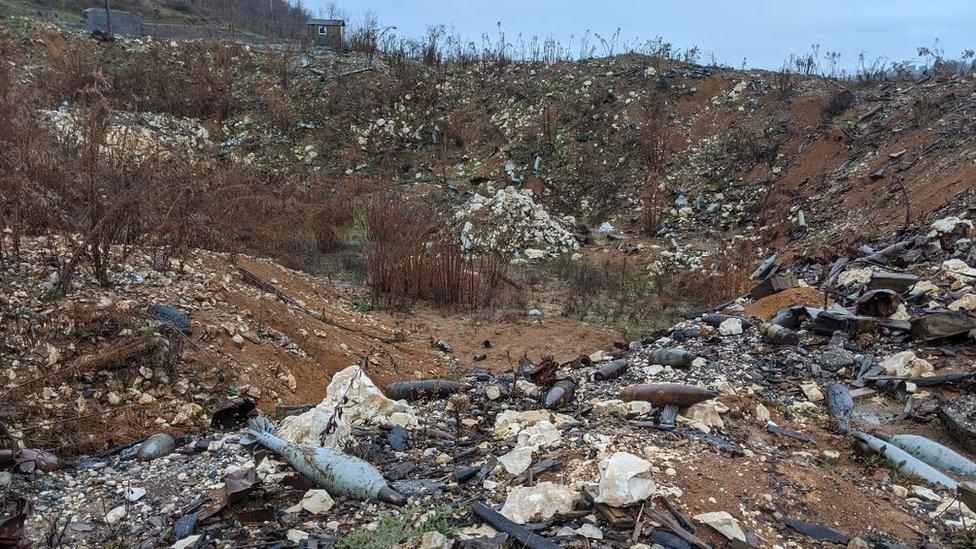
The site of the explosion that is now being cleaned up
The Halo Trust has been clearing up the area ever since, destroying more than 90,000 items but a third of the affected area has still to be made safe.
For all of these countries the explosion in the Lebanese capital is a terrifying reminder of what can happen when unstable explosive material is unsafely stored.
Munitions experts are now hoping that if anything positive can possibly come out of the tragedy in Beirut, it will be a renewed global urgency to make these stockpiles safe, before it is too late.
- Published11 August 2020
